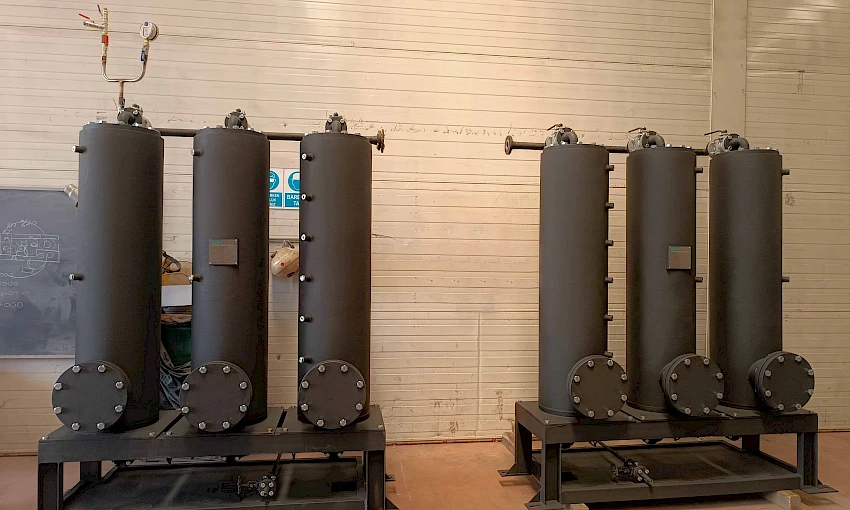
What is Waste Oil and Why is it Dangerous?
Waste oil is the residue of oils used in industrial processes and motor vehicles after they have reached the end of their useful life. When released into the environment, they contaminate soil and water resources, threatening living organisms. Additionally, being flammable, they increase the risk of fire.
Why is Waste Oil Recycling Important?
Recycling waste oil is crucial for reducing its environmental impact, conserving natural resources, and creating economic value. Recycled oil can be used in various applications such as energy production, insulation materials, and the production of new oils.
Waste Oil Recycling Plant Installation
Imagine a world where waste oil is transformed into a valuable resource. At Aces Process, with this vision in mind, we build high-efficiency and sustainable facilities that process waste oil without harming the environment.
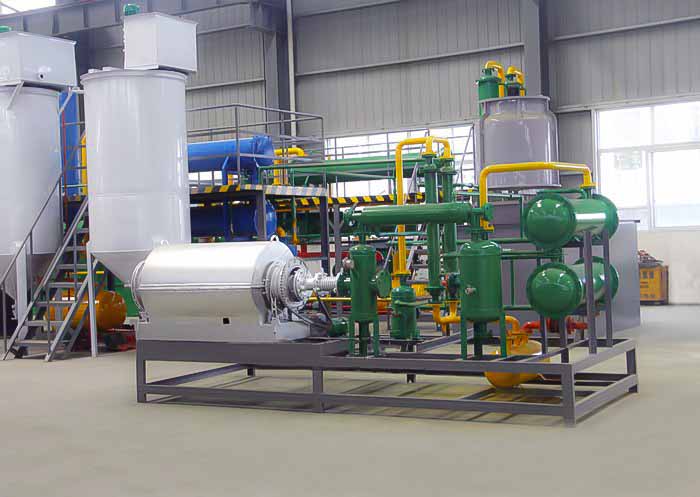
What Sets Aces Process Apart
-
Expert Team: Our team of experienced engineers and technicians successfully completes every project.
-
Customized Solutions: We provide tailor-made solutions to meet our customers' specific needs, ensuring maximum efficiency of facilities.
-
Latest Technologies: We guarantee minimal environmental impact in the processing of waste oil by using the latest technology equipment in our facilities.
-
Global References: We have achieved a respected position in the sector by successfully completing projects in many countries.
"The waste oil recycling facility equipment we designed and manufactured specifically for our German customer has been delivered as planned."
Waste Oil Recycling Process
At our facilities, waste oil is processed through the following steps:
-
Collection: Waste oil collected securely with special equipment is brought to our facility.
-
Separation: Waste oils are separated according to their types and contamination levels.
-
Purification: Harmful substances in the waste oil are separated and the oil quality is improved through our advanced purification systems.
-
Utilization: Purified oils are used in the production of new products such as base oils and fuel oils.
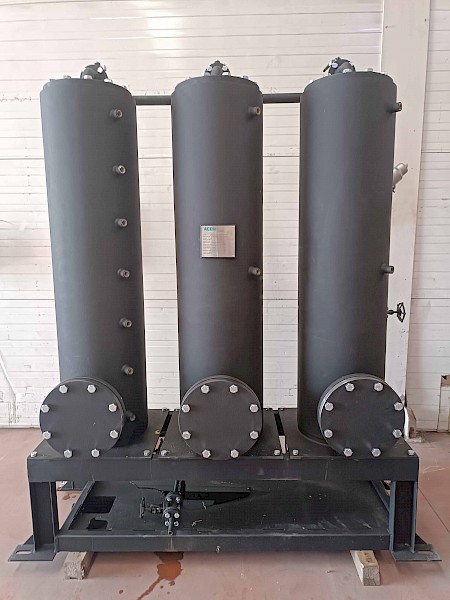
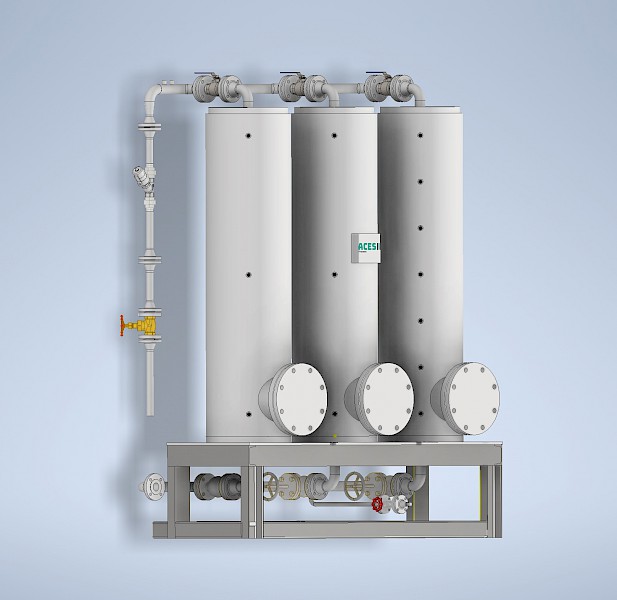
Machinery Used in Waste Oil Recycling Facilities
-
Storage Tanks: Waste oils are safely stored in various sized stainless steel storage tanks.
-
Filtration Systems: Solid particles and water in the waste oil are completely separated with our high-performance filters.
-
Temperature Control Systems: Precise temperature control systems are used to reduce the viscosity of the oil and facilitate the separation process.
-
Centrifuges: High-speed centrifuges separate oil and water in the shortest time.
-
Vacuum Pumps: Vacuum pumps optimize the separation process by reducing the pressure in the system.
-
Distillation Units: High-tech distillation units allow the oil to be separated into its different components.
Advantages of Working with Aces Process
-
Sustainability: We offer environmentally friendly, sustainable solutions.
-
Economic Benefit: We provide you with additional income by recycling your waste oil.
-
Legal Compliance: We operate in compliance with all legal regulations.
-
Long-Term Partnerships: We establish long-term partnerships with our customers.
-
Expert Team: Aces Process, with its team of experienced engineers and technicians, offers the best service to its customers.
-
Global References: Aces Process has a respected position in the sector by successfully completing projects in many countries.
Energy Production from Used Oil Recycling
Used oils, widely used not only in motor vehicles but also in industrial processes, become waste when their useful life ends. The disposal of this waste as a waste poses a significant environmental and economic problem. This is where used oil recycling comes into play. Used oils can be processed into fuels that can be used for energy production. This not only eliminates the harmful effects of waste oil on the environment but also reduces our dependence on fossil fuels. The energy obtained from recycled oils can be used in heating, electricity generation, and many other areas. Energy production from used oil recycling is a significant step towards sustainability. This process contributes to the conservation of natural resources and plays a significant role in combating climate change by reducing carbon emissions.
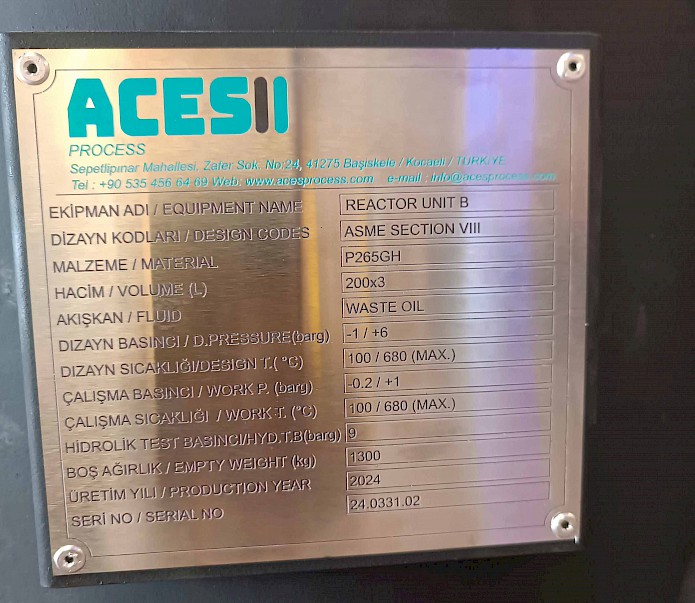
Environmental Impact of Waste Oil Recycling
When released into nature, waste oils contaminate soil and water resources, threatening living organisms. Additionally, they pose a fire hazard due to their flammability. Therefore, proper management of waste oil is crucial. Waste oil recycling is one of the most effective methods of minimizing environmental impact. Through recycling;
-
Soil and water resources are protected: Waste oils are disposed of safely without entering the environment.
-
Air pollution is reduced: Harmful emissions from burning waste oil are prevented.
-
Consumption of natural resources is reduced: The consumption of natural resources such as petroleum, which are used in the production of new oils, is reduced.
With an environmentally friendly solution, contact us immediately to convert your waste oil into a valuable raw material!



